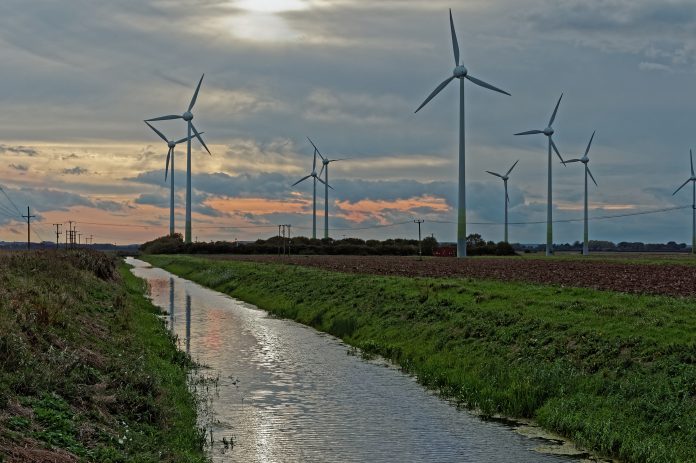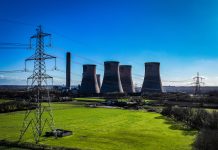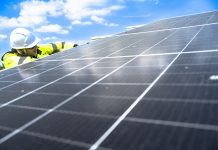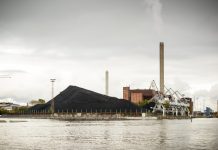Here, we examine the priorities for energy policy in the UK, with a focus on the work of The Rt Hon Alok Sharma MP, Secretary of State for Business, Energy and Industrial Strategy in this vein
The Rt Hon Alok Sharma MP became Secretary of State for Business, Energy and Industrial Strategy on 13th February 2020 (1), replacing The Rt Hon Andrea Leadsom MP who held the same role between July 2019 and February 2020. (2) It is worth noting here that Alok Sharma MP was also appointed Minister for COP 26, the 26th United Nations Climate Change Conference at the same time. His previous positions include Secretary of State for International Development from July 2019 to February 2020 and Minister of State for Employment at the Department of Work and Pensions between January 2018 and July 2019.
While the Secretary of State has overall responsibility for the Department for Business, Energy and Industrial Strategy (BEIS), this article will focus on the energy aspects of his remit. Other areas he covers, of course, include science, innovation, business and industrial strategy. This article will look at one of his key priorities, to ensure that the UK “has secure energy supplies that are reliable, affordable and clean.” (1)
Increasing renewables in the UK
In terms of energy supplies, we find out in early March 2020 that millions more homes in the UK will be powered by renewables including onshore wind and solar, plus floating offshore wind. On 2nd March, details of the next round of the Contracts for Difference scheme were announced, which opens in 2021. The scheme will be altered to facilitate energy storage deployment. As part of this scheme, local communities can have a definitive say on whether projects are allowed to take place or not.
Secretary of State for Business and Energy Alok Sharma provides more detail about increasing renewables in the UK: “Ending our contribution to climate change means making the UK a world leader in renewable energy. We are determined to do that in a way that works for everyone, listening to local communities and giving them an effective voice in decisions that affect them.”
RenewableUK’s Chief Executive Hugh McNeal added: “The government is pressing ahead with action to meet our net zero emissions target quickly and at lowest cost to consumers and businesses. Backing cheap renewables is a clear example of the practical action to tackle climate change that the public is demanding, and this will speed up the transition to a net-zero economy.” (3)
Alok Sharma – COP26 President
Picking up on a point mentioned earlier, let’s now look in more detail about Alok Sharma’s appointment as the COP26 President, alongside his new position at BEIS. Certainly, his undoubted experience gained from his time as Secretary of State at the Department for International Development will be very helpful indeed when it comes to driving ambitious climate action from countries who will be part of the conference in Glasgow this November.
During his first full week in the role, Alok Sharma held a meeting with UN Deputy Secretary-General Amina Mohammed, where they agreed to work closely together on the path towards a successful, globally ambitious summit. COP26 President Alok Sharma said: “It is a great honour to take on the role of COP26 President. I have started working with my new team ahead of the summit in Glasgow this November, where we aim to speed up the global journey to net-zero carbon.
“We will be building on efforts to urge all countries to bring forward ambitious plans to curb their emissions ahead of the event itself. It is vital everyone comes together to deliver the change needed to tackle climate change and protect our planet.” (4)
The energy transition
One policy issue that The Rt Hon Alok Sharma MP made during his first speech as COP26 President-Designate at the UN concerned the energy transition, in particular, making the most of the massive opportunities that cheaper renewables and energy storage afford. In his speech, he explained that during the last few years, we have witnessed alliances such as Powering Past Coal’ that can encourage momentum. He explained how in the UK, the extent to which the amount of energy from coal has dropped and, therefore, he encourages a transition to clean energy. Alok Sharma also stressed the need to help developing countries in this spirit.
“In the UK the proportion of energy generated from coal has fallen from 40% in 2012 to 5% in 2018. We all need to invest in the innovation which will help us accelerate the transition to clean energy. But we also need to help empower developing countries to leapfrog the polluting options of the past and embrace the clean energy of the future.” (5)
£1.2 billion for a weather and climate supercomputer
Finally, I want to note an interesting development that forms part of Alok Sharma’s remit. It concerns how “predicting severe weather and the impacts of climate change will be faster and more accurate than ever before” thanks to a new supercomputer to help communities be better prepared for weather disruption, including “more detailed information for the energy sector to help them mitigate against potential energy blackouts and surges.”
Business and Energy Secretary and COP26 President Alok Sharma said that the new supercomputer will drive forward innovation across supercomputing, machine learning, data science and artificial intelligence.
“Over the last 30 years, new technologies have meant more accurate weather forecasting, with storms being predicted up to 5 days in advance.
Come rain or shine, our significant investment for a new supercomputer will further speed up weather predictions, helping people be more prepared for weather disruption from planning travel journeys to deploying flood defences.” (6)
References
1) https://www.gov.uk/government/people/alok-sharma
2) https://www.gov.uk/government/people/andrea-leadsom
3) https://www.gov.uk/government/news/millions-more-homes-to-be-powered-by-renewables
4) https://www.gov.uk/government/news/alok-sharma-appointed-cop26-president











